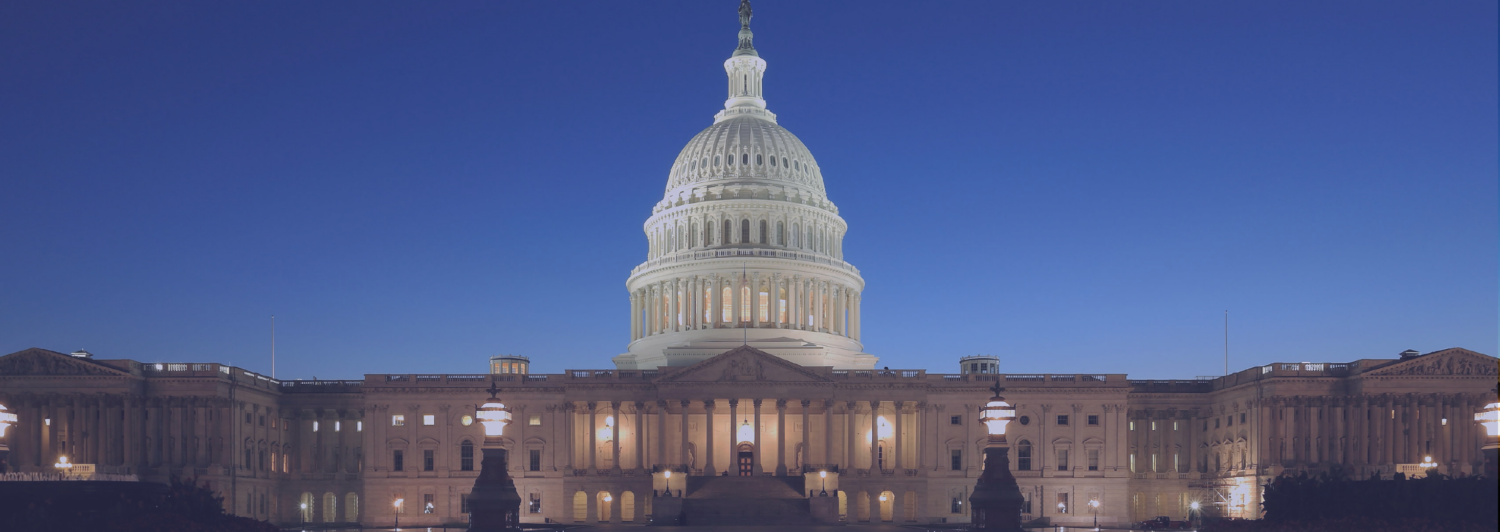Following Facebook’s announcement last month of plans to launch its own private cryptocurrency, Libra, lawmakers intensified their scrutiny of the cryptocurrency industry and kickstarted important discussions around its future. Last week, I spent 3 days on Capitol Hill attending both the House and Senate Libra hearings and meeting with staff from the House Financial Services Committee as well as several individual members.
It is clear that trust and transparency are among the U.S.’s top concerns in evaluating Libra and other cryptocurrencies. While much of the discussion was dominated by classification (security vs commodity), data privacy & data protection, impacts on the USD and the global financial system, and concerns around illicit activity, lawmakers also do not want to hinder innovation.
My main takeaway is that the cryptocurrency industry has a tremendous opportunity to seize the Libra moment and educate our elected officials on how transparency into blockchains can not only alleviate their (valid) concerns, but build a better, more trustworthy financial system.
To be sure, Facebook’s move into cryptocurrency is an exciting development for the industry as the company could make cryptocurrencies available instantly to billions of users. However, the more pervasive use of cryptocurrency creates financial inclusion for both good and bad actors, and robust compliance offerings for anti-money laundering (AML) and combating the financing of terrorism (CFT), including transaction monitoring, will be essential- providing the trust and transparency needed to build and maintain Libra’s financial integrity, meet the legal requirements of regulators, and assist law enforcement around the world.
Further, proper compliance from the Libra Association, combined with collaboration with properly resourced law enforcement agencies and regulators, could potentially provide better visibility and more effective mitigation in combating illicit financial activity than many traditional financial systems currently in place.
This is the crux of the argument we made in our letter to Congresswoman Maxine Waters in anticipation of the House hearing, which was reiterated by David Marcus, Head of Calibra, the Facebook subsidiary whose goal is to provide financial services that will let people access and participate in the Libra network, during his testimony.
Time and again, Marcus cited the importance of proper AML/CFT programs, and went on to explain that Libra chose blockchain technology precisely because it can provide more visibility than current systems, which rely on self-reporting. Libra is betting that the right technology combined with the right regulations and collaboration with law enforcement will improve, not hinder, efficacy in this space.
The Executive Branch also weighed in on Libra and cryptocurrency in the past several days. President Donald Trump commented on Twitter, saying he’s “not a fan of bitcoin and other cryptocurrencies… Unregulated crypto-assets can facilitate unlawful behavior, including drug trade and other illegal activity.”
Of course, cryptocurrency isn’t the only method of payment used to fund illicit activity; banks have been fined billions of dollars for these problems and continue to incur such fines today. But unlike cross-border wire transfers and cash transactions, blockchains perfectly preserve the provenance of financial transactions and do not suffer from data integrity issues. That means that with blockchain analysis tools, cryptocurrency businesses like Calibra can identify risky transactions and regulators and law enforcement can investigate suspicious activity. For example, on Thursday, the United States Attorney for the Southern District of New York announced the arrest of an individual charged with money laundering assets from dark web narcotics trafficking thanks in part to blockchain analysis.
Treasury Secretary Steven Mnuchin went a step further than the President during his press briefing on regulatory issues associated with cryptocurrency, making headlines for calling out the financial technology as a national security threat. While cryptocurrency is often associated with buying drugs on the darknet, most people probably don’t think of it as a national security threat. But cryptocurrency is cross-border and, without the proper KYC and transaction monitoring solutions, could be a blind spot for pretty much any national security program you can think of, including counterintelligence, counterproliferation, and counterterrorism.
It is clear the President and his administration wanted to show they are conscious of the threats imposed by cryptocurrency before the Congressional Libra hearings and their concerns regarding illicit activity and national security threats are valid. The ball is now in the industry’s court to show how cryptocurrencies, including Libra, can manage these risks as well as or better than traditional finance.
Indeed, the increased scrutiny from both Congress and the Executive branch in light of Libra’s ambitious plans is an opportunity. Based on my conversations on Capitol Hill this week, there is clearly a newfound appetite from lawmakers to learn more about AML/CFT in the industry. If nothing else, the introduction of Libra has elevated cryptocurrency so that officials from across the U.S. government have taken notice.
Now it’s our job to educate lawmakers and elected public officials on how blockchain analysis can mitigate illicit activity in cryptocurrency and build trust and transparency in these new markets.
